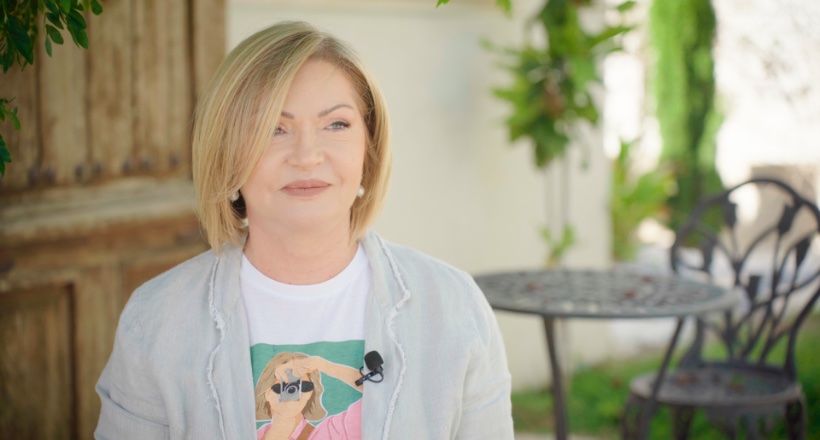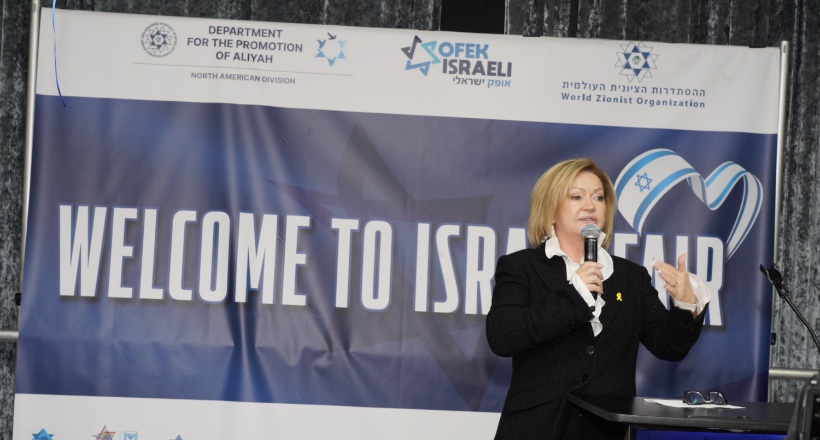Reducing the budget for repatriation support is unacceptable
Marina Rosenberg Koritny, Head of the World Zionist Organization Department for the Promotion of Aliyah

Israel is going through difficult times. After the tragedy of October 7, 2023, when about 7,000 terrorists infiltrated Israel, killing 1,182 people, injuring more than 4,000, and taking 251 hostages, the country faced unprecedented challenges — military, economic, social. The budget is stretched thin, and cuts have affected many areas. But there are areas where cutting funding is not just a mistake — it’s a blow to the very essence of our state. One such area is the support for repatriation.
Jews in the diaspora are disoriented. Even in countries that were never associated with antisemitism, such as Switzerland, people are starting to ask themselves: “What’s next?”. What about France and the UK, where police advise Jews not to wear kippahs and not to show their national identity? Or the Netherlands, where police refuse to guard Jewish sites “for moral reasons”, and participants in a mass attack on Israeli fans in Amsterdam got away with laughable punishments? In Belgium, a criminal court acquitted writer Herman Brusselmans, who openly stated he wanted to “stick a sharp knife into the throat of every Jew he meets”. These are not isolated incidents — this is the new reality that Jews around the world are facing.
Israel was created as a refuge for every Jew, no matter where they lived. This is not just a beautiful phrase from history textbooks — it’s our duty, our mission. But we cannot wait until threats become reality, until families are forced to flee, leaving everything behind. People need to know that they are always welcome in Israel, not just when danger knocks at their door. Repatriation should not be a rescue operation on the brink of disaster. It’s a systematic effort: helping Jews to look into their future here, to see prospects, to feel wanted.
Let me give you an example. We recently held a Zoom marathon “Together with Israel: The Way Home”. Thousands of Jews from around the world signed up. The interest in Israel is huge, and the questions we are asked speak volumes. This is not idle curiosity — it’s a search for answers: “How do I start a new life? What awaits my family?”. The Hebrew classes that our department organizes in different countries are also breaking records. With each academic year, the number of people wanting to learn the language grows. People don’t just want to learn Hebrew — they want to be part of Israel.
Zionism is as relevant as ever. It’s not an outdated ideology, but a living force that connects Jews with their home. But this connection cannot be maintained with words alone — resources, programs, people on the ground are needed. Cutting the budget for repatriation is not saving, but giving up on the future. We cannot afford to abandon those who look to Israel with hope.
Yes, the situation is difficult. War, economic downturn, internal problems — all require money. But cutting support for repatriation means undermining what Israel exists for. These are not just numbers in reports. These are the fates of people who want to be with us. This is our chance to strengthen the state, to make it alive and strong.
Golda Meir once said: “We want to live. The enemies want to see us dead. This leaves not too much room for compromise.” Today, her words sound like a reminder: compromising with the future is unacceptable. As the Head of the World Zionist Organization Department for the Promotion of Aliyah, I am convinced — working with repatriates must remain a priority. It depends not only on their life but also on ours. Cutting the budget for repatriation means weakening Israel at the moment when it needs to be stronger than ever. We cannot afford such a luxury.





